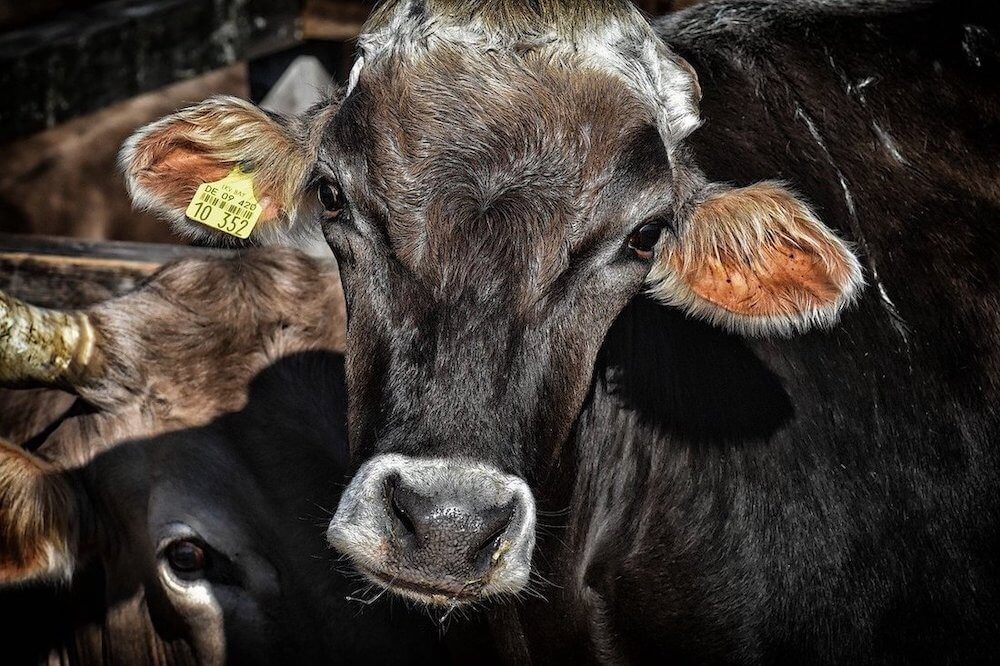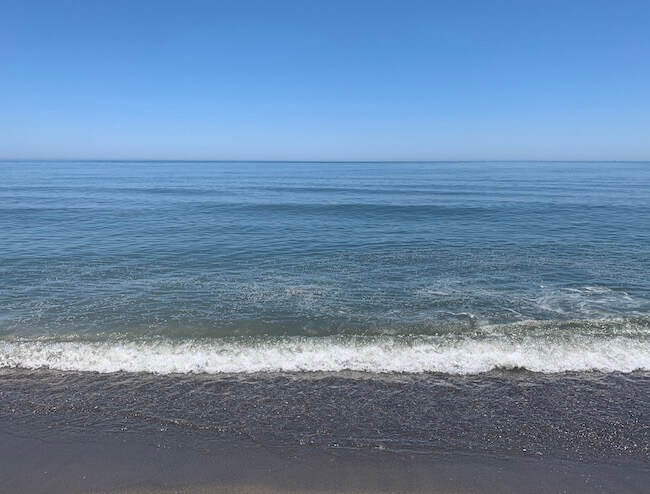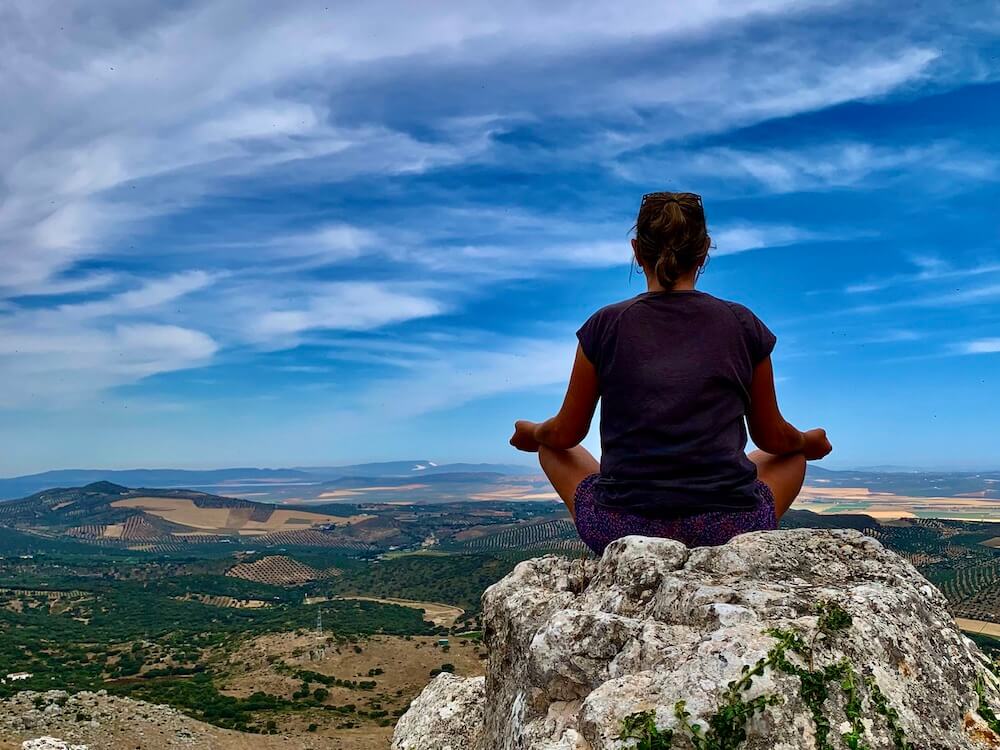Why is fasting so hard?
Because you’re hard-wired to eat. Because you’re a habitual creature, and because this fasting business is going to test your will-power.
Fasting’s about so much more than just not eating.
You brain will try to talk you out of it.
You’re going against a natural survival instinct and also disobeying the programming of your subconscious mind, which thinks you simply must eat every day.
On top of all that, you’re going against an extreme habit. More than a habit.
Hundreds of habits in fact, all revolving around our food and our mealtimes. It isn’t just the food itself but the whole ritual.
And finally, you’re taking away a great pleasure.
For most of us, eating’s a pleasure, and even for those who don’t adore their food, they still get some pleasure from eating.
And let’s not even get started on what you did the day before fasting. Drinking alcohol before a fast for example, that will make it much harder.
15 Reasons Why Fasting is So Hard
- You’re going against a survival instinct (so naturally, your body will rebel and try to get you to eat something).
- Having meal times at a certain time of day forms a deeply ingrained habit. And habits are hard to break.
- It’s not just the eating you’re stopping but also all the rituals around the eating and all the memories around food.
- Your subconscious mind’s programmed to believe you have to eat so it will try to convince you to get you back to your food.
- Other people may still cook and eat food around you, creating temptation.
- You may have the enticing smell of your favourite food wafting into your nostrils, triggering a desire to eat while fasting.
- Your inner voice might start whining that you never signed up for this in the first place. Just one bit of food will be fine . . . it whispers. (Erhm not if you want to complete the fast!)
- If you have unrealistic expectations about the ongoing results, failure to achieve those can deflate your determination.
- New experiences are more difficult to assimilate as you don’t have any previous experience by which to gauge your emotions/reactions.
- You can experience withdrawals from caffeine, sugar or other foodstuffs, which may give you headaches during the fast while your body detoxes.
- Your energy levels can drop while your body adjusts to the new fasting state and switches over to burning fat instead of glucose, especially in the first 3 days.
- You may feel weak or dizzy during the fast (especially if you don’t take care of your electrolytes).
- Your mouth becomes dry and furry with an unpleasant taste, and you can get bad breath.
- It can be hard to continue with your work, especially if it’s your first time fasting.
- Social pressure can be difficult. Most people don’t understand fasting unless they do it themselves, so you may feel isolated.
- You might find yourself becoming obsessed with food or the lack of it.
How Can I Make Fasting Easier?
It makes sense to make fasting easier in any way you can, so that you can at least enjoy the experience of it.
Fasting can bring so many benefits to your life. At the very least it can be an exciting new experience, and there’s no need for it to be a negative one.
Make it easier on yourself by following these steps.
Each one is discussed in more detail further on below.
11 Tips for Making Fasting Easier
- Prepare your mindset before you start by practising self-hypnosis. Put serious effort and time into the preparation of your subconscious mind. It’s the most important key to success you could ever have.
- In addition to the self-hypnosis, practise visualising food and actually not wanting it. Feel the satisfaction of your success before you even begin. And in your mind’s eye, rehearse all those foodie moments you’re likely to come across in reality.
- Practise intermittent fasting before you tackle a prolonged fast.
- If possible, design your day so that you aren’t hanging around other people as they eat their meals. Go for a walk, bury yourself in a book or do some other activity during mealtimes.
- Keep your expectations on the low side, so that they’re readily achievable. If your goals are too ambitious, such as losing too much weight or fasting for too long for example, they’re likely to set you up for failure.
- Write everything in a journal to learn from it next time. It will also help make the fasting easier, giving you an outlet for sharing your experiences and triumphs.
- Deal with any food addictions before you start a fast. If you don’t already eat mianly whole foods, try out a vegan wfpb diet before you start fasting, so that you don’t have to suffer the headaches. Rid yourself of any sugar addictions, cut out alcohol and, unless you’re planning to include it in your fasting period, get off the caffeine.
- Eat a small amount in the days leading up to the fast.
- Practise a meditation or a self hypnosis session each night so that you maintain your strength mentally. Be accepting if it seems more difficult to do than normally. It will pass.
- Remind yourself of your ‘whys’.
- Know that the early-day difficulties are just a bridge you need to cross to the other side, where it will become easier.
#1 Prepare Your Mindset
There are ways you can make fasting easier.
That’s not to say it’ll be easy.
Just easi-er.
The most important tip of all, and a golden rule for whenever you want to change something, is mindset. Get your subconscious mind on board before you begin and at least then you’ll know that you’re not going to stop/fail/give up.
And that knowledge can give you superpowers.
You might still have narky symptoms. You might have to put up with tons of inner dialogue. You might even obsess about your fast or the food you want to eat.
You might wonder when you will stop feeling hungry on a water fast.
But you’ll be strong because you know that you’re not about to give up.
And that can make it much easier to do.
To get to that state of sureness in yourself, practise self-hypnosis, where you reenforce all the reasons and benefits of fasting. Do the practise every night before you go to bed (or at any time you prefer) until you can really sense the satisfaction.
By doing this, you change your subconscious beliefs around going without food. Instead of feeling deprived (hang on, sometimes that might happen too), you’ll generally be able to feel pleased at yourself for going another hour or day without food.
#2 Do Visualisations Before You Start Fasting
Visualising food and you not wanting to eat it is a great simulator for the actual fast and can help prepare you mentally for going without food.
#3 Practise Intermittent Fasting Before You Start
If you aren’t used to going extended periods without food, start off small and build it up gradually. You may choose to eat in an 8 hour window, so skip breakfast and bring your dinner earlier, with an 8/16 hour ratio.
In this way you prepare yourself mentally and physically for fasting for longer periods.
#4 Do an Activity at Meal Times
It can help if you’re not having to sit and watch other people eat.
So instead of feeling frustrated or anxious as the smell of delicious food wafts towards you, much better to do an activity instead.
Whether it be to read a book, write a project, go for a walk or do some yoga – get active when it’s mealtime in your home.
#5 Set Realistic Goals
You might be motivated by wanting to lose weight, by your health or by the experience itself.
Whatever the motivation, think about it and make sure you’re not demanding too much from the fast.
Especially with weight loss, if you expect to see a certain amount of weight falling off each day and then it doesn’t happen, you might feel like giving up.
#6 Keep a Journal
Keeping a journal can make fasting easier in at least two ways that I can think of. Logistically, it means you can keep a record of everything as it happens so that you can learn from it for the next fast.
You can also use that to motivate you to keep going.
But writing down your feelings and experiences also help mentally as it gives you an outlet, somewhere where you can share whatever’s happening in the moment.
#7 Deal with Food Addictions Before You Start Fasting
This is a biggy.
If you eat processed foods, drink alcohol, eat tons of sweet foods or drink several coffees a day and then you suddenly stop, you’re likely to get some killer-headaches when you fast.
Instead, eat a clean diet first. If you’re not there yet, why not set a challenge of eating a diet free from sugar as your first goal and leave fasting for once you’ve got rid of those things.
#8 Eat a Small Amount in the Days Before the Fast
For a couple of days before you start your fast, try eating smaller amounts of quality food.
It may help the transition over to not eating anything at all. It will also help your body to switch over faster to burning fat once you’re fasting than if you dive in from fully-blown meals to nothing.
Full transparency! When I did my 5 day fast, I completely disregarded this tip. it was after over-eating for 10 days while I was abroad visiting family.
#9 Practise Meditation or Self Hypnosis
As you go to bed each night, or pick another time of day that fits your schedule, practise a self-hypnosis session.
In your self hypnosis, (re)discover all the wonders of your magical inner garden as you go on a journey in your mind. When you come to settle in your hypnosis, allow yourself to revisit your joy at succeeding in fasting.
#10 Remind Yourself of Your Whys
Remind yourself of why you wanted to do the fast in the first place.
It might sound obvious, but believe me, that inner chatter of yours can easily distract you to the point that you lose sight of what you wanted to achieve in the beginning.
A gentle reminder goes a long way.
#11 Remember – It Gets Easier
If you’re struggling during the early part of a fast, remember that it’s harder in the beginning – and usually the second day is the toughest.
After that your body stops trying to get you to eat and instead switches to burning fat as an energy source. You may find that on day three you’re not feeling hungry at all, as strange as that may sound.
So go for it, and enjoy!
Video: Prolonged Fasting Too Hard?
Final Thoughts on Why Fasting is So Hard
Fasting may be hard to get in to at the beginning, but most people who try it find that it’s well worth it. And the difficulties fade over time.
The second day seems to be the most difficult one, with the third and subsequent days bringing an adjustment from the body and a drop in hunger.
So if you thought that fasting is hard, don’t let it put you off.
Give it a go and see what you think!
And if you’ve already practised fasting, what was the hardest day for you?
Did you still work through your fast to the end? I’d love to hear more in the comments section.
Thanks for reading!








